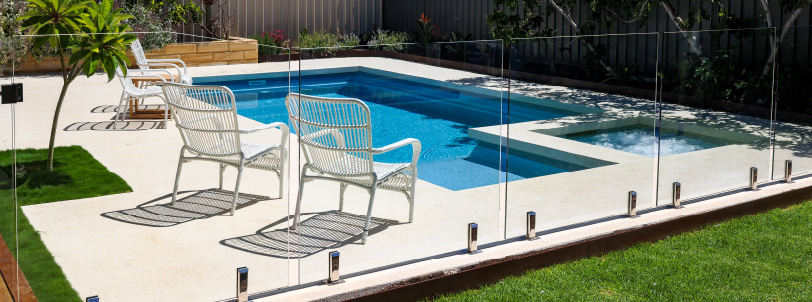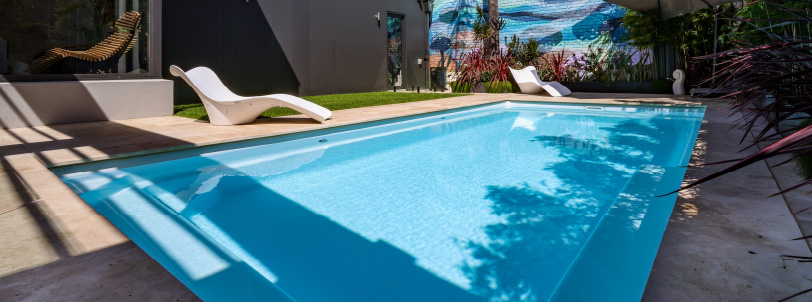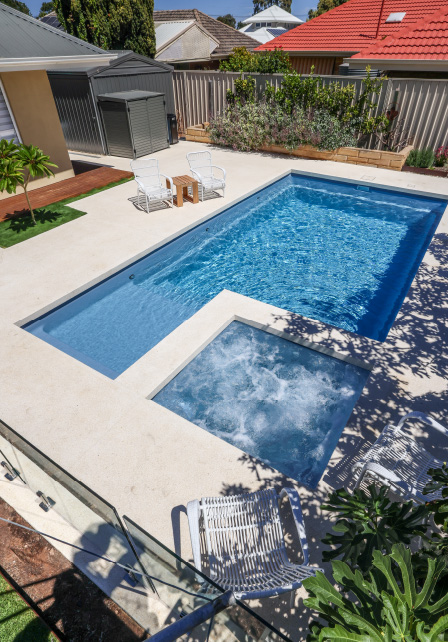Keeping Warm By The Pool In Winter
For some, the idea of swimming in winter sounds like the beginning of a dare or a plunge into an icy demise. However, winter swimming is a practice embraced by many athletes, pool owners, and adventure-seekers as it comes with a unique set of benefits. In this comprehensive guide, we’ll not only explore the allure of winter swimming but equip you with the knowledge to practice it safely, enjoyably, and regularly. Whether you're a pool owner looking to maintain a year-round swimming schedule or a fitness enthusiast wanting to try something new, the information here will break down what you need to know about staying warm in the waters during winter.

The Allure of Winter Swimming
Swimming in winter isn’t just for the extreme or eccentric—it’s for anyone who wishes to experience invigoration, tranquillity, and the subtle beauty that only winter months can offer. The stillness and crisp air combined with the sensation of being submerged in water can provide a form of mindfulness and rejuvenation that is hard to come by in any other activity.
For fitness fanatics, winter swimming offers a unique challenge. The cooler water temperature can enhance cardiovascular health, boost the immune system, promote faster recovery, and improve mental fortitude. Ready to take the plunge? Here’s what you need to know to make your winter swimming experience a success.
The Science Behind Winter Swimming
How The Body Reacts to Cold Water
When you dip into cold water, your body experiences what’s known as the ‘cold shock response’. Your heart rate increases dramatically, and you start to breathe heavily, initially to aid in constricting the blood vessels to increase pressure and to retain heat.
Over time, regular exposure to cold water has been shown to elicit a ‘rewiring’ of the body’s response to cold, allowing it to deal with lower temperatures more comfortably. This is why winter swimmers may seem superhuman, when in reality, they’ve conditioned their bodies to handle the cold with aplomb.

Health Benefits of Winter Swimming
Beyond the initial shock and shivery feeling, regularly swimming in cold water can lead to a host of health benefits. It’s thought to improve circulation, enhance the generation of white blood cells (thereby strengthening the immune system), and can even have a positive effect on mood and stress levels.
Winter Pool Maintenance
If you have a pool and plan to swim throughout the winter, maintaining it is essential. The chillier weather can bring challenges like freezing water volume expansion, damage potential for your pool’s pump and filter, and possible changes in your chemical balance.
Basic Winter Pool Maintenance
- Manage Your Water Level: Properly managing the water level is critical. If it’s too high, draining it down can help prevent damage in case of freezing. If it’s too low, your pool’s skimmers and pump systems may suffer.
- Keeping It Balanced: Your pool’s chemical balance is as important in winter as it is in summer. Test regularly and keep pH levels in check.
- Skim and Clean: While your pool will likely see less debris in winter, it’s still important to skim frequently and keep it clean to avoid any accumulation and imbalance.
- Check Your Pool’s Mechanisms: Regularly inspect your pool’s pump, water lines, filters, and heaters for any issues that could be exacerbated by winter conditions.
Staying Warm
Preparing for Your Winter Swim
Before the big chill, it’s a good idea to get your body prepared for the colder swim. A quick workout, a warm shower, or wearing thermal clothing immediately before swimming can help raise your core temperature and get your body into gear for a more comfortable experience.
What to Wear While Winter Swimming
The right attire is key to keeping warm. Layering is a great technique, beginning with a thermal swimsuit, followed by a swim cap to keep heat from escaping from your head. Additionally, neoprene gloves and socks can significantly protect from the cold.

Techniques to Stay Warm While Swimming
- Keep Moving: Once in the water, keep yourself moving constantly. This will generate body heat to fend off the cold.
- Warm-Up Exercises: Perform a few warm-up exercises before entering the water, like jogging on the spot or doing jumping jacks, to get your circulation going.
- Breath Control: Practise controlled breathing to help minimise the ‘gasp’ response and regulate your heart rate.
Post-Swim Warmth
The conclusion of your swim does not signify the end of the challenge you face. After you emerge from the water, it’s crucial to engage in a slow and steady warm-up process. Consuming a warm beverage can help raise your internal body temperature, while taking a hot shower can aid in gradually increasing your overall warmth. Changing into dry clothing as soon as possible is another vital step to prevent the onset of hypothermia. It’s important to remember that the period immediately following your swim is when your body is most vulnerable to experiencing a rapid drop in body temperature. Hypothermia can set in quickly if proper precautions are not taken, making these warm-up measures not just beneficial but essential for your safety and comfort. By taking these steps, you can ensure that you conclude your swimming experience in a way that preserves your health and well-being.
By understanding how the body responds to cold, appreciating the health benefits of winter swimming, and knowing how to care for your pool and body, you can make the most out of this refreshing activity. Winter swimming is not only for the die-hard fitness fans or the offbeat adventurers—it’s an accessible and rewarding pastime for anyone willing to step out of their comfort zone and into the bracing waters.
This winter, consider keeping your pool open, the heat on, and give winter swimming a try. You may find a new passion that sustains you for generations of happy, healthy swimming. Remember, there’s no such thing as bad weather, just the wrong choice of attire for the weather.
Keeping Warm By The Pool In Winter
For some, the idea of swimming in winter sounds like the beginning of a dare or a plunge into an icy demise. However, winter swimming is a practice embraced by many athletes, pool owners, and adventure-seekers as it comes with a unique set of benefits. In this comprehensive guide, we’ll not only explore the allure of winter swimming but equip you with the knowledge to practice it safely, enjoyably, and regularly. Whether you're a pool owner looking to maintain a year-round swimming schedule or a fitness enthusiast wanting to try something new, the information here will break down what you need to know about staying warm in the waters during winter.

The Allure of Winter Swimming
Swimming in winter isn’t just for the extreme or eccentric—it’s for anyone who wishes to experience invigoration, tranquillity, and the subtle beauty that only winter months can offer. The stillness and crisp air combined with the sensation of being submerged in water can provide a form of mindfulness and rejuvenation that is hard to come by in any other activity.
For fitness fanatics, winter swimming offers a unique challenge. The cooler water temperature can enhance cardiovascular health, boost the immune system, promote faster recovery, and improve mental fortitude. Ready to take the plunge? Here’s what you need to know to make your winter swimming experience a success.
The Science Behind Winter Swimming
How The Body Reacts to Cold Water
When you dip into cold water, your body experiences what’s known as the ‘cold shock response’. Your heart rate increases dramatically, and you start to breathe heavily, initially to aid in constricting the blood vessels to increase pressure and to retain heat.
Over time, regular exposure to cold water has been shown to elicit a ‘rewiring’ of the body’s response to cold, allowing it to deal with lower temperatures more comfortably. This is why winter swimmers may seem superhuman, when in reality, they’ve conditioned their bodies to handle the cold with aplomb.

Health Benefits of Winter Swimming
Beyond the initial shock and shivery feeling, regularly swimming in cold water can lead to a host of health benefits. It’s thought to improve circulation, enhance the generation of white blood cells (thereby strengthening the immune system), and can even have a positive effect on mood and stress levels.
Winter Pool Maintenance
If you have a pool and plan to swim throughout the winter, maintaining it is essential. The chillier weather can bring challenges like freezing water volume expansion, damage potential for your pool’s pump and filter, and possible changes in your chemical balance.
Basic Winter Pool Maintenance
- Manage Your Water Level: Properly managing the water level is critical. If it’s too high, draining it down can help prevent damage in case of freezing. If it’s too low, your pool’s skimmers and pump systems may suffer.
- Keeping It Balanced: Your pool’s chemical balance is as important in winter as it is in summer. Test regularly and keep pH levels in check.
- Skim and Clean: While your pool will likely see less debris in winter, it’s still important to skim frequently and keep it clean to avoid any accumulation and imbalance.
- Check Your Pool’s Mechanisms: Regularly inspect your pool’s pump, water lines, filters, and heaters for any issues that could be exacerbated by winter conditions.
Staying Warm
Preparing for Your Winter Swim
Before the big chill, it’s a good idea to get your body prepared for the colder swim. A quick workout, a warm shower, or wearing thermal clothing immediately before swimming can help raise your core temperature and get your body into gear for a more comfortable experience.
What to Wear While Winter Swimming
The right attire is key to keeping warm. Layering is a great technique, beginning with a thermal swimsuit, followed by a swim cap to keep heat from escaping from your head. Additionally, neoprene gloves and socks can significantly protect from the cold.

Techniques to Stay Warm While Swimming
- Keep Moving: Once in the water, keep yourself moving constantly. This will generate body heat to fend off the cold.
- Warm-Up Exercises: Perform a few warm-up exercises before entering the water, like jogging on the spot or doing jumping jacks, to get your circulation going.
- Breath Control: Practise controlled breathing to help minimise the ‘gasp’ response and regulate your heart rate.
Post-Swim Warmth
The conclusion of your swim does not signify the end of the challenge you face. After you emerge from the water, it’s crucial to engage in a slow and steady warm-up process. Consuming a warm beverage can help raise your internal body temperature, while taking a hot shower can aid in gradually increasing your overall warmth. Changing into dry clothing as soon as possible is another vital step to prevent the onset of hypothermia. It’s important to remember that the period immediately following your swim is when your body is most vulnerable to experiencing a rapid drop in body temperature. Hypothermia can set in quickly if proper precautions are not taken, making these warm-up measures not just beneficial but essential for your safety and comfort. By taking these steps, you can ensure that you conclude your swimming experience in a way that preserves your health and well-being.
By understanding how the body responds to cold, appreciating the health benefits of winter swimming, and knowing how to care for your pool and body, you can make the most out of this refreshing activity. Winter swimming is not only for the die-hard fitness fans or the offbeat adventurers—it’s an accessible and rewarding pastime for anyone willing to step out of their comfort zone and into the bracing waters.
This winter, consider keeping your pool open, the heat on, and give winter swimming a try. You may find a new passion that sustains you for generations of happy, healthy swimming. Remember, there’s no such thing as bad weather, just the wrong choice of attire for the weather.


